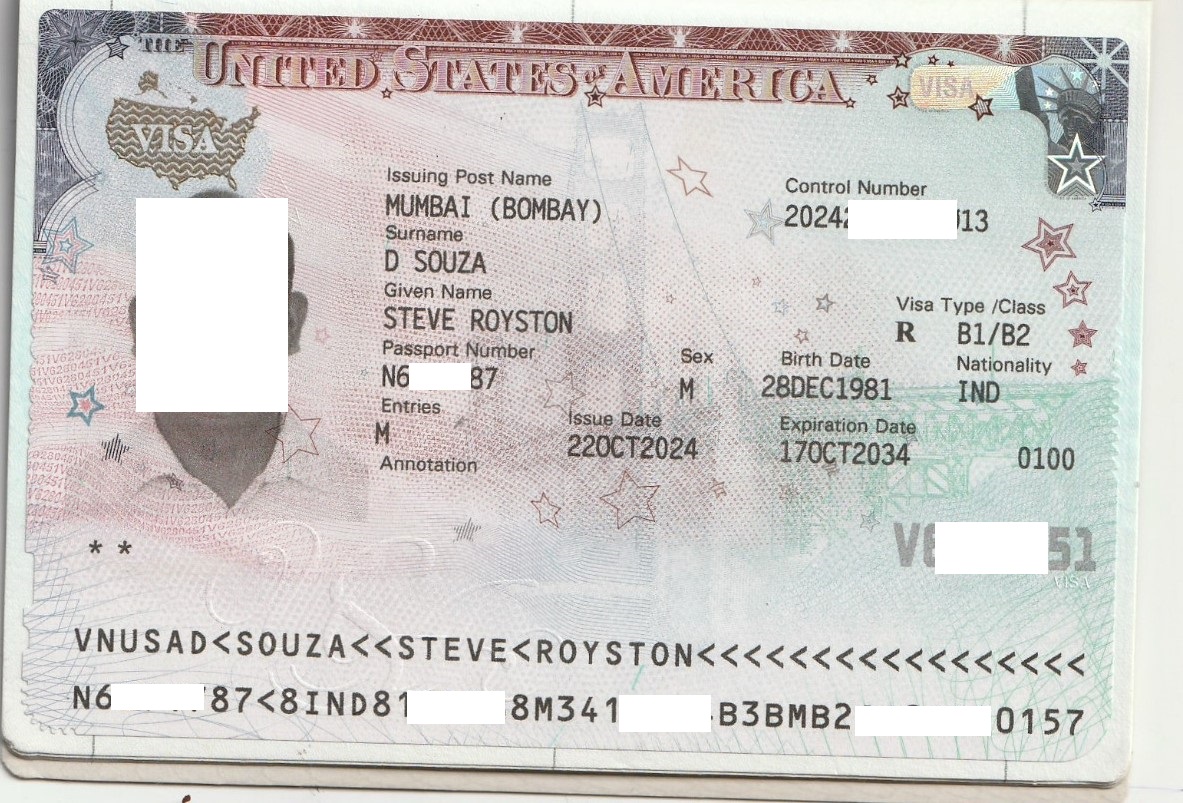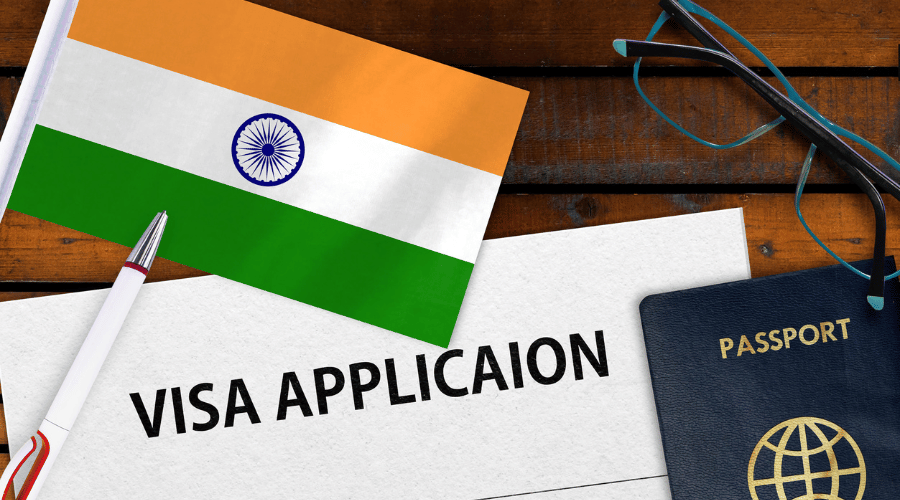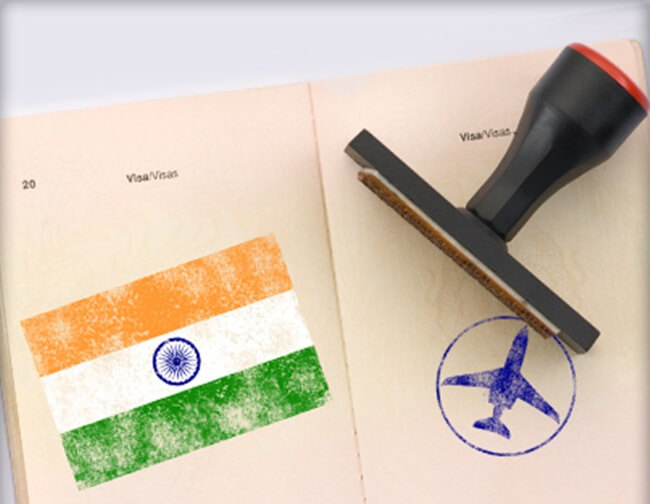Opening Opportunities: Important Details on US Visas for Indian People
Maneuvering the intricacies of US visa choices is important for Indian people intending to discover chances in the US. With various classifications ranging from short-lived visitor visas to pathways for long-term residency, understanding the nuances of each can significantly influence one's journey. This conversation will certainly highlight essential info, consisting of application treatments and qualification criteria, that can equip individuals in their search of new experiences. As we unpack these crucial facets, the concern arises: what methods can one utilize to boost their opportunities of an effective application?
Review of US Visa Kind
When traversing the complex landscape of US immigration, comprehending the different kinds of visas offered is necessary for Indian citizens seeking entrance right into the US (Types Of US Visas). The US immigration system is mainly categorized into two broad classifications: immigrant visas and non-immigrant visas
Immigrant visas are designated for those planning to live completely in the US. These include family-sponsored and employment-based visas, where applicants generally call for an enroller. Non-immigrant visas, on the various other hand, satisfy people seeking short-term home, such as vacationers, business visitors, and those taking a trip for specific functions like job or study.
Within the non-immigrant classification, several visa kinds exist, including B-1/ B-2 for organization and tourist, H-1B for specialized occupations, L-1 for intra-company transferees, and O-1 for people with remarkable capabilities. Each visa has unique qualification needs and application processes, requiring detailed research to figure out the suitable classification.
Comprehending these classifications is important for Indian people, as it enables them to navigate the application process better, guaranteeing they choose the appropriate visa kind to fulfill their details demands and objectives. US Visas For Indian Citizens.
Trainee Visa Options
For Indian citizens striving to research in the US, student visas offer an essential pathway to pursue scholastic opportunities. The primary visa groups for pupils are the F-1 and M-1 visas.
The F-1 visa is assigned for academic pupils enlisted in a permanent program at a recognized organization, such as universities and universities. This visa permits trainees to participate in on-campus employment and, under certain conditions, take part in optional functional training (OPT) after completing their level, offering important work experience in their discipline.
Alternatively, the M-1 visa is intended for vocational or non-academic programs. It accommodates trainees pursuing technical or vocational training, permitting them to register in non-degree programs. M-1 visa holders might take part in sensible training, yet it is normally extra minimal contrasted to the F-1 group.
To acquire a student visa, candidates need to secure admission to a united state institution, obtain a Type I-20, and show monetary ability to sustain their education and living costs. Understanding these visa alternatives is substantial for Indian residents preparing to commence their academic trip in the US.
Visa Categories
Numerous Indian people seeking job opportunity in the US might think about numerous classifications tailored to various professional requirements and qualifications. One of the most prominent is the H-1B visa, created for knowledgeable employees in specialized occupations needing a college degree or its equal. It permits US companies to briefly employ international employees, with a cap on the number of visas provided annually.
One more important group is the L-1 visa, which assists in the transfer of staff members within multinational companies. The L-1A visa is for supervisors and executives, while the L-1B visa is for employees with specialized understanding.
The O-1 visa satisfies individuals with amazing capacities in their area, including science, arts, or service. For farming or seasonal job, the H-2A and H-2B visas are readily available, permitting companies to employ foreign workers for momentary placements.
Family-Based Immigration
Family-based immigration provides a path for US people and authorized irreversible homeowners to rejoin with their family members from India. This immigration classification is essential for keeping domestic bonds and helping with the integration of family participants into USn society. US citizens can request for immediate family members, consisting of spouses, children, and parents, without dealing with annual restrictions on visas. This expedited procedure considerably reduces waiting times for these close family links.
In contrast, lawful irreversible citizens may sponsor spouses and single youngsters, however they go through yearly caps, resulting in longer wait times. The family-sponsored immigration system is divided right into two primary categories: prompt loved ones and household preference classifications. The previous consists of those that have a straight partnership with an U.S. resident, while the last incorporates even more distant family members, such as brother or sisters and wedded kids of people, and children of lawful permanent locals.
For Indian citizens looking for family-based immigration, understanding the subtleties of this system is vital. Appropriate paperwork and adherence to application methods are important for successful sponsorship. By maneuvering through these complexities, families can function in the direction of reuniting and developing their lives together in the US.
Irreversible Residency Process
The procedure of acquiring permanent residency in the US entails a number of key visa groups customized for Indian residents. Understanding the application actions, consisting of needed documentation and eligibility standards, is necessary for a successful outcome. Furthermore, possible applicants ought to be mindful of the expected timeline and specific needs associated with each classification.
Visa Categories Introduction
While passing through the intricacies of the US immigration system, Indian citizens seeking irreversible residency needs to acquaint themselves with various visa categories tailored to various scenarios. The primary pathway for permanent residency is through employment-based visas, which are classified right into several preferences, including EB-1 for people with amazing abilities, EB-2 for experts holding postgraduate degrees, and EB-3 for competent employees. Each group has certain qualification demands and handling times.

Diversity visas, although limited in number, give a chance for people from underrepresented nations to get permanent residency through a lotto system. Furthermore, altruistic alternatives such as asylum and evacuee status deal paths for those facing mistreatment.
Understanding these visa categories is crucial for Indian people, as they substantially affect the method for acquiring permanent residency in the US. Each category's subtleties and demands demand cautious consideration to line up with specific situations and objectives.
Application Process Steps
Guiding the application process for permanent residency in the US entails several essential actions that must be carefully followed to assure an effective outcome. The trip normally starts with establishing the appropriate immigration group, such as employment-based or family-sponsored visas. Candidates should collect crucial paperwork, including evidence of eligibility, economic statements, and individual recognition.
When the category is recognized, the next step is to file the Form I-130 (Petition for Alien Relative) or Form I-140 (Immigrant Application for Alien Worker), relying on the basis of the application. Complying with the authorization of the petition, applicants will certainly need to finish the National Visa Facility (NVC) processing by sending the required costs and forms.
Next off, the applicant should undergo a medical exam and get cops clearance certificates. Once these are completed, an interview will be scheduled at the US consular office or embassy. It is vital to prepare completely for this meeting, as it can significantly influence the decision on the application. Ultimately, upon authorization, the applicant will certainly get their environment-friendly card, providing them irreversible residency in the US.
Timeline and Requirements
Charting the timeline and demands for getting irreversible residency in the US is crucial for Indian citizens looking for to establish a lasting presence. The process largely hinges on employment-based or family-sponsored pathways, each with particular prerequisites and timelines.
For employment-based migration, the procedure commonly starts with a labor qualification, which can take numerous months. Once authorized, the company files a Kind I-140, Immigrant Application for Alien Employee, which can take an additional six months to a year, depending on the handling center. Complying with I-140 authorization, candidates might require to await their top priority date to become present, which can vary significantly based on the candidate's classification and nation of beginning.
For family-sponsored migration, US residents can petition for prompt loved ones, which generally leads to faster processing. Nevertheless, other family groups may involve much longer wait times because of annual caps.
Application Procedures
Understanding the application treatments for US visas is crucial for Indian people seeking entry right into the US. US Visas For Indian Citizens. This section will offer an introduction of numerous visa groups and lay out the detailed procedure for using. By following these standards, candidates can navigate the complexities of the visa successfully
Visa Categories Overview
Navigating the numerous visa groups offered to Indian people can be an intricate process, yet it is vital for those looking for to take a trip, work, or research in the US. The US visa system is categorized mostly into non-immigrant and immigrant visas, each serving distinctive functions.
Non-immigrant visas, such as B-1/ B-2 for company and tourist, F-1 for scholastic study, and H-1B for specialized employment, permit short-term remains. Candidates need to demonstrate their intent to go back to India after their see.
In comparison, immigrant visas, consisting of family-sponsored and employment-based classifications, offer a path to long-term residency. These visas usually call for sponsorship from a family member or employer in the US, together with a strenuous application procedure.

Step-by-Step Process
Commonly, the application process for US visas entails a number of crucial actions that applicants need to carefully comply with to guarantee a smooth experience. The very first step is to determine the suitable visa category based on the function of travel, such as job, study, or tourism. Once the classification is determined, candidates have to finish the online DS-160 form, supplying exact individual information and travel information.
After sending the DS-160, applicants must pay the visa fee, which varies by visa kind. Next, set up a visit for a visa interview at the local US Embassy or Consulate. Types Of US Visas. It is critical to get ready for the interview by gathering needed records, consisting of a valid visa, visa verification, fee settlement receipt, and any type of sustaining paperwork particular to the visa group
On the day of the interview, arrive punctually and gown suitably. During the interview, be prepared to address inquiries regarding your travel intents, economic security, and connections to India. If authorized, the visa will be stamped in the visa, enabling for traveling to the United States. Adhering to these steps assures a well-organized and efficient application procedure for Indian residents.
Tips for an Effective Application

Guarantee that all kinds are completed accurately and truthfully. Tiny errors or omissions can result in hold-ups and even denials. It is suggested to collect all necessary supporting documents, consisting of monetary declarations, employment letters, and proof of connections to India, which show your intent to return post-visit.
Plan for your visa meeting by exercising responses to common concerns related to your itinerary and history - Types Of US Visas. Self-confidence and quality can greatly impact the police officer's impact. Finally, take into consideration seeking assistance from respectable migration professionals if you really feel overwhelmed
Frequently Asked Questions
What Are the Processing Times for US applications?
Handling times for US visa can vary substantially based on the visa kind, application quantity, and the candidate's location - US Visas For Indian Citizens. Usually, applicants need to prepare for a processing duration ranging from a couple of weeks to several months
Can I Modification My Visa Status While in the US?
Yes, individuals can transform their visa standing while in the US, offered they fulfill eligibility needs and follow correct treatments. It is critical to file the suitable application with US Citizenship and Immigration Solutions (USCIS)
Exist Age Limits for US Visa Applicants?
There are generally no details age limitations for US visa candidates; nevertheless, certain visa groups may have age-related eligibility standards. It is necessary to review the demands for every visa type to ensure conformity.
What Are Common Factors for Rejection?
Common factors copyright rejection consist of insufficient financial sources, failure to show connections to the home nation, insufficient application, absence of proper documentation, previous migration infractions, and failing to meet qualification standards for the details visa classification.
How Can I Appeal a Visa Rejection Decision?
To appeal a visa rejection, evaluate the consular officer's factors, collect sustaining paperwork, and submit an official interest the proper authority, making sure to stick to defined timelines and step-by-step requirements for the charm procedure.